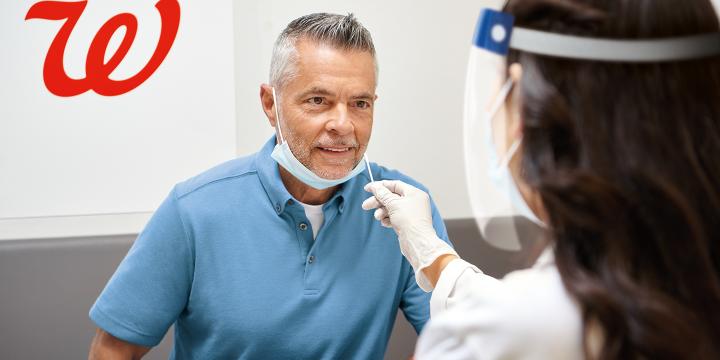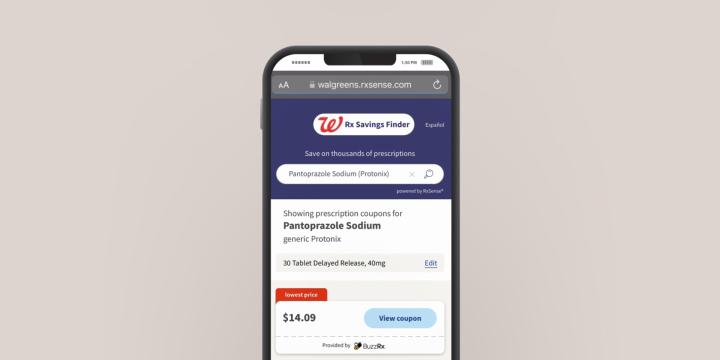A new year means a fresh start, and the healthcare industry could certainly use it. A 2023 Harris Poll shows that more than 70% of Americans feel the healthcare system is failing to meet their needs in at least one way.
Building on our pharmacy strengths—access, trust, convenience and deep community relationships—Walgreens is uniquely positioned to be part of the solution to fix healthcare in our country. Here’s what some of our top leaders are predicting will be critical issues, trends and developments in 2024 across pharmacy, retail and healthcare.
1. Pharmacies as healthcare hubs
“Pharmacies are poised for a transformative shift, becoming holistic healthcare hubs beyond their traditional roles. Offering vaccinations, screenings, disease management and counseling, pharmacy teams play a vital role in promoting proactive health and deepening patient engagement. These services, coupled with retail offerings for minor treatments and diagnostics, will meet the patient demand for convenience and comprehensive care in a single location.” – Rick Gates, Chief Pharmacy Officer
2. Leveraging AI to forecast retail trends
“Artificial intelligence can drive forecasting using external data. With nearly 9 million average daily customer interactions across 200 million products, Walgreens has evolved processes and technology to create the best customer experience whether in-store or via delivery. Our investment across increasingly sophisticated technology takes in everything from weather patterns to social media trends to evaluate large sets of data and guide decisions on where to place inventory. This helped us predict regional and local trends during cough, cold and flu season earlier this year so Walgreens could ensure we had the over-the-counter products our customers and patients needed in stock throughout the season.” – Tracey Brown, President, Walgreens Retail & Chief Customer Officer
3. Telehealth and AI will grow, relieving burden for healthcare workers
“Telehealth has proven beneficial to consumers by providing convenient access to healthcare, but what it hasn’t done yet is provide relief in the physician shortage department. As we continue to look for alternate methods of care delivery, non-doctor telehealth services—for example, AI-driven chatbots and symptom checker apps—will help reduce the burden on the healthcare system by providing preliminary information, offering guidance and empowering individuals to manage certain health concerns without physician involvement. This will be a natural evolution of what’s happening in the consumer world, which is quickly becoming self-service.” – John Driscoll, President, U.S. Healthcare
4. Appropriate access and use of weight loss drugs
“The emerging evidence on diabetes drugs that are being used to help people lose weight represents a promising answer in the long fight against obesity, but the industry has not yet found the best path to sustainably deliver these medications to those who need them most. In 2024, we will see meaningful advancements toward addressing this issue across insurers, employers, PBMs, providers and pharmacies. From the patient perspective, access to holistic wrap-around services is crucial when using these drugs—services will need to go beyond medication provision, offering comprehensive support, education and resources.” – Dr. Sashi Moodley, Chief Medical Officer
5. Heightened focus on women’s health research
"One glaring gap that has been historically overlooked is the lack of research into diseases predominantly affecting women, despite them making up over half of the population. Fortunately, this oversight is gaining the attention it deserves. In 2024, we’ll see public and private organizations collaborate to develop technology-driven, data-informed, community-centric solutions to enhance women's health research.” – Ramita Tandon, Chief Clinical Trials Officer
6. New tech propels pharmacy evolution
“With innovations like AI-driven verification systems, robotic dispensing mechanisms and micro-fulfillment centers, our industry is poised to optimize operational efficiency, accuracy and overall performance in ways that have been unattainable until now. The progress we expect to see isn’t just about convenience; it's about freeing up more time for pharmacists to spend with patients, empowering adherence and engagement, and offering an unparalleled and personalized healthcare experience." – Rick Gates, Chief Pharmacy Officer
7. Consumer value is priority No. 1
“Accenture reports that while consumers are making difficult spending trade-offs spurred by economic constraints, they don’t plan to do so when it comes to health and fitness spending. With this environment, it’s important that retailers focus on consumer value, especially when it comes to health. Through Walgreens owned brand products, we are focused on increasing the breadth and value of our offering with an emphasis on quality, innovation and trust. Walgreens owned brands will continue to be a priority across the business as we seek to deliver high-quality products.” – Tracey Brown, President, Walgreens Retail & Chief Customer Officer
8. More value-based care models
“Payers, providers and health systems will grow beyond entrenched fee-for-service models and embrace value-based care to improve patient outcomes and control costs. As a result, these entities will seek out strategic partners like Walgreens to co-navigate big issues like rising costs as well as streamline vendors and solutions. Patients will rightfully keep the pressure on for value, convenience and price transparency, pushing the healthcare industry to put them first and take a community- and patient-centered approach." – Dr. Sashi Moodley, Chief Medical Officer
9. Using real-world experiences to improve the patient journey
“Better representation in clinical trials hinges upon our ability to engage patients on their own terms. As the clinical trials landscape evolves, so does our understanding of how people's environments contribute to their wellbeing and quality of life. In the year ahead, engagement will continue to be personalized based on patient demographics and experiences leveraging insights on social determinants of health, new technology advancements, and how our pharmacy teams can continue to serve as strong community researchers to bridge the gap between research and care.” – Ramita Tandon, Chief Clinical Trials Officer
10. Generative AI will help provide culturally competent care
“AI has already proven to hold tremendous potential for healthcare—improving diagnostics and supporting the decisions doctors make in addition to tackling administrative tasks and leaving more time for humans to connect to humans. As a next step, I’d like to see the healthcare industry start thinking about how to combine the right data with the right prompts so we can get to the point of AI helping us to provide culturally competent care. The tools are there, we just need to give these systems the right information.” – John Driscoll, President, U.S. Healthcare
Explore Themes in this Article
-
Our Stories Stay informed and connected with what’s going on at WBA by catching the latest company stories and videos.





